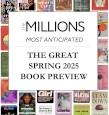A panel of experts gathered in Washington D.C. last week to discuss how their creative industries are coping with technological disruption cited AI as the latest challenge in a decades-long struggle to maintain sustainable careers in the digital era. The panel was part of "The Story Starts With Us," a day-long forum that addressed the threat generative AI poses to copyright law and the creative industries. It was co-hosted by the Association of American Publishers and the Copyright Alliance.
The panel was moderated by Alex Reisner, a freelance journalist and contributing writer for The Atlantic who has written extensively about AI’s illegal use of copyrighted books for training, and highlighted the precarious balance between technological innovation and protecting creative livelihoods.
Jennifer Schott, Nashville songwriter and board member of the Nashville Songwriters Association International, asserted that Big Tech is constantly patronizing the creative industries. Technologist always tout how technology is innovation, but creators are also innovators, she said. "We’re all innovators,” Schott said.
Schott recalled how the advent of Napster and the decline in terrestrial radio coincided with the start of her career in songwriting. While she has been able to sustain a career, the competition for diminishing opportunities intensifies, especially in the age of streaming. “I’ve seen numerous of my friends leave the business because they could not make a living,” she said.
Still, while streaming services have made some progress in developing models that offer remuneration, Schott noted, “songwriters are still making a smaller percentage than the artist or the record label," Schott said.
AI now presents another obstacle as original songs compete with AI-generated works. "We create as songwriters, then what I create is ingested by AI, which then creates a new song. Now the song that I wrote is now competing with something that AI created," Schott said. "The marketplace is even more crowded. Seriously, how do I expect to keep making a living?"
Even successful songwriters express uncertainty about their future. "I've heard Hall of Fame songwriters...say, 'I don't know if I'm going to be able to keep doing that' in another five, ten years," Schott said.
Jonathan Taplin, author, film producer and former tour manager for Bob Dylan, whose most recent book is The End of Reality warned that the tech billionaires' vision for AI does not facilitate discernment or curation. "I'm trying to imagine what kind of world this is going to be when the estimate is, by the end of this year, there will be 300,000 tracks uploaded to Spotify every single day of the year," Taplin said. "99.5 percent of those do not pass the ‘who cares test?’ And maybe 30 to 40 percent of them are made by AI."
Taplin noted that AI-generated content extends beyond music to books. "On Amazon, there are thousands and thousands of books that are what Jane Friedman calls ‘garbage books,’" Taplin said, explaining that AI can quickly produce derivative works that appear on Amazon before the original author's book is released.
"I'm just worrying that we're going to just have a garbage culture. All those songs spit out on Spotify, all those garbage books on Amazon, all those garbage paintings that are all over the web," Taplin said. "If we don't fight, it's not just money. It's the culture itself is going to be destroyed."
Steven Overly, host of Politico Tech, pointed out that AI threatens entire ecosystems. "Most creative industries are kind of like icebergs where the public only sees a very small portion and even less of what makes any of that creative work possible," Overly said.
Using an example of AI-generated models replacing human ones, Overly noted broader consequences: "When you do that, you not only replace the model itself, the person who we see, you also potentially replace makeup artists, hair stylists, clothing stylists, sort of entire industries and ecosystems that are built up around that creative product," Overly said.
Taplin added a sobering example: "I have a friend who used to run the largest public relations agency in Los Angeles... he had about 120 professionals working for him. About 100 of them wrote copy," Taplin said. "He said if he was going to do it today, he'd have five people who were salesmen and use ChatGPT generative AI to write all the press releases."
Schott emphasized the cultural value at stake. "This country was built on creators, all kinds of creators," Schott said. "We are America. I mean, think about our creative output, and you think about music. American music is all over the world... Nothing's gonna beat a human creator. AI is just copying and watering down."
Despite these challenges, Schott remains optimistic. "I believe that we will figure it out, and we always have,” she said. “We were scared with Napster. We figured it out. We were scared with streaming, and we're figuring it out.”
Her advice to aspiring songwriters includes advocacy: "Get involved. Nashville Songwriters Association is a big voice here in DC and across the country... The more human voices we have the better," Schott said.
Panelists also acknowledged AI's potential benefits. Schott described using AI tools to create demo vocals mimicking artists' voices, strictly for pitching songs rather than monetization. Taplin said his use AI application Perplexity for research purposes, but emphasized he "would never use it to write" content for publication.
"If we don't fight, it's not just money," Taplin warned in the panel's most forceful moment. "It's the culture itself that is going to be destroyed.”








